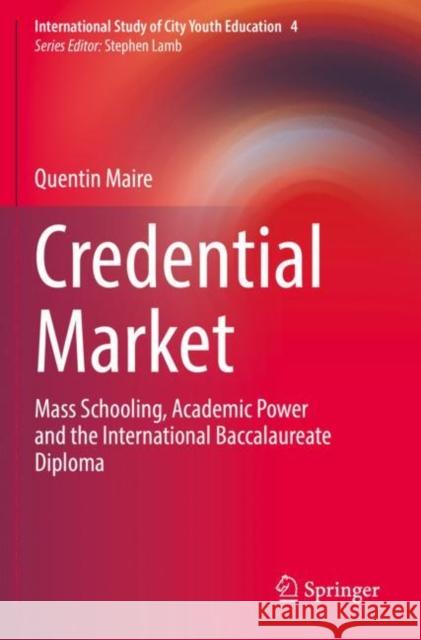Credential Market: Mass Schooling, Academic Power and the International Baccalaureate Diploma » książka
topmenu
Credential Market: Mass Schooling, Academic Power and the International Baccalaureate Diploma
ISBN-13: 9783030801717 / Angielski / Miękka / 2022
Credential Market: Mass Schooling, Academic Power and the International Baccalaureate Diploma
ISBN-13: 9783030801717 / Angielski / Miękka / 2022
cena 401,58
(netto: 382,46 VAT: 5%)
Najniższa cena z 30 dni: 385,52
(netto: 382,46 VAT: 5%)
Najniższa cena z 30 dni: 385,52
Termin realizacji zamówienia:
ok. 22 dni roboczych.
ok. 22 dni roboczych.
Darmowa dostawa!
This book makes an original contribution to credential sociology by analysing how high school certificates become and remain valuable in a context of mass high school participation (i.e. credentialism). Building on a detailed analysis of the International Baccalaureate (IB) Diploma, a senior secondary school certificate offered in over 150 countries, Quentin Maire argues that the advent of new private credentials can be understood as a phenomenon of credential stratification in a context of intensified academic competition.Using original data on high school credentials in Australia and internationally, the author makes a strong case for certificates to be studied relationally, by locating them in the credentialing structures in which they are inserted. He systematically applies the comparative method to explain the role of the curriculum, family resources, school segregation and higher education selection in creating a credential hierarchy. His robust combination of theoretical construction and detailed empirical work allows him to offer new insights into social inequality in education systems, credential theory and the IB Diploma.











